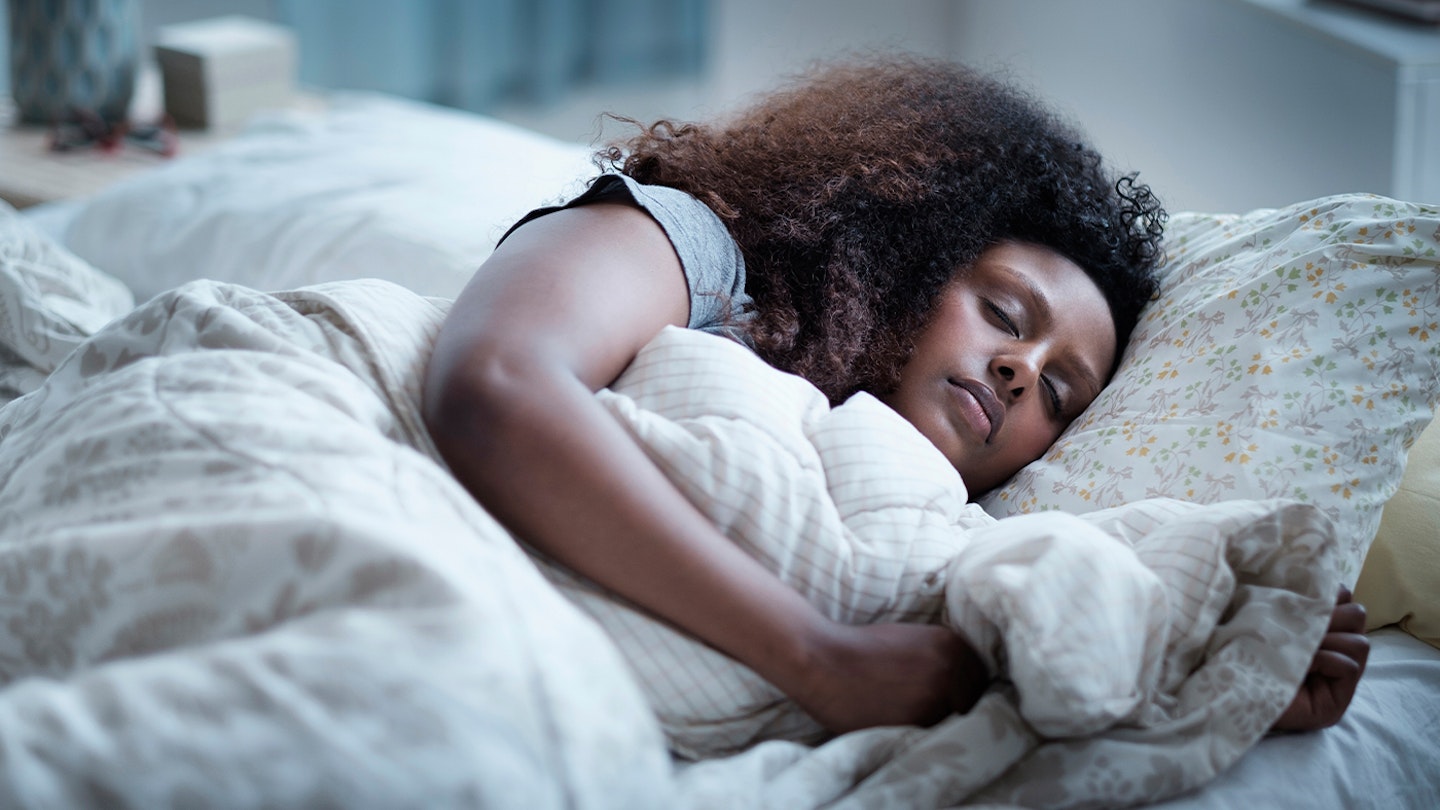With a healing wound and a newborn baby to look after, it’s very important for mums to know how to best look after themselves and recover after giving birth via c section, and that can start with making sure you sleep comfortably after a c-section, which may take a little more effort than just finding the right pregnancy pillow.
The best thing you can do to aid your recovery from a c-section is to get plenty of sleep – which we know can be a tricky task as a new mum.
Whether it’s those first few days when you’re in hospital or you’ve just got home and you’re trying to get comfy, there are a number of things you can do to help yourself get in a comfortable position to sleep and rest. When you get in the right position and sleep comfortably after a c-section, it can make a world of difference.
We spoke to pregnancy and postnatal expert and Lansinoh brand ambassador, Becca Maberly of A Mother Place who has shared her expert advice on the best sleep positions and advice post c-section, giving you great ways to sleep comfortably after a c-section.
How much rest should you aim to get after a c-section?
As much as you can, says Becca. As with any birth, rest is key, but this is often easier said than done when you have a new baby to look after. People often tell you to sleep when the baby sleeps, but if your baby is not a good sleeper, then this advice often falls flat.
Why good sleep is so important for C-section recovery
It’s important to remember that a c-section is considered major abdominal surgery and as with other surgeries, rest is crucial to recovery. Your body needs all the energy possible to help with healing. In the first few weeks after a c-section, it's the most essential time for rest, so if you have a partner, family member or friend who can take baby and let you have a nap during the day then try to get them to step in to help you recover quickly.
Becca says that avoiding heavy lifting is also crucial in the first few weeks after your c-section, as you need to avoid putting strain on your stitches, so having family around if possible will be really important. If your baby does sleep, prioritise having time to yourself and rest. You'll also want to wait before having sex after your c-section to further aid recovery.
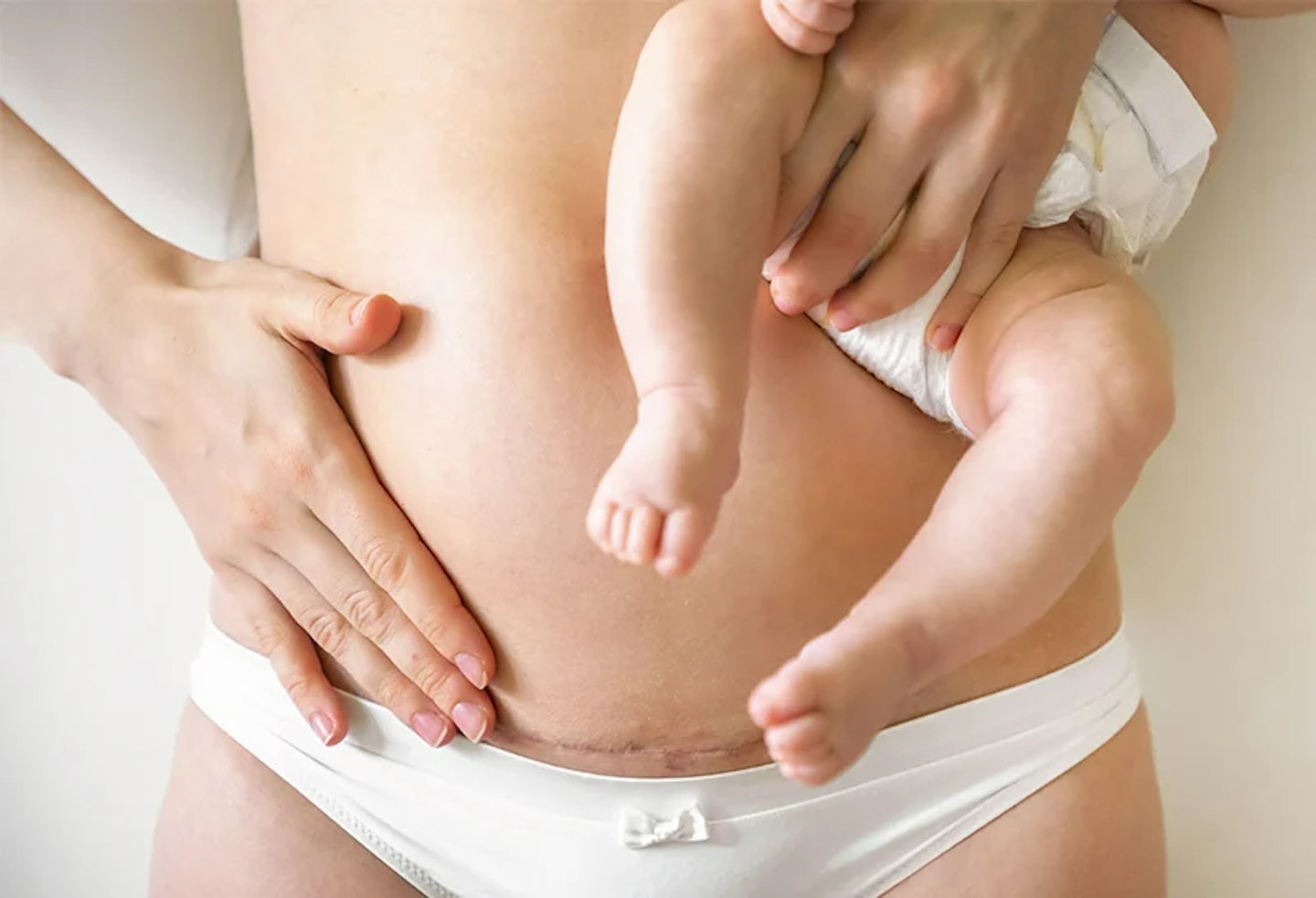
Why sleep may be difficult after a c-section
Finding enough time to rest after having a c-section and having a baby to care for is one thing, but there are a number of other challenges you'll be faced with.
You'll be in some pain and discomfort, which will make sleep tricky, and because of the incision that needs to heal, your movement will also be significantly restricted.
These two factors can contribute to the disrupted sleep patterns you're also experiencing due to looking after your newborn at such frequent intervals inbetween the times they're sleeping.
Discovering how to get comfortable in bed while looking after your healing wound is one step towards you being able to get some shut-eye. This means learning about the best sleep positions to help you sleep comfortably after a c-section, along with any ohter tips and tricks.
How to sleep after c-section: Best sleep positions
If you're looking for the best position to sleep after a c-section, Becca says there's no one single sleeping position that will suit all women who have had a caesarean section. However, she says there are a few positions that may be recommended to help you sleep comfortably after a c-section.
The recommendation is to choose a position that is the most comfortable for you, and be careful when you go to sit up as you do not want to put any strain on your stitches. Becca explains that if you are sleeping on your back you will probably want to roll on to your side and use your arms to help yourself up.
Some safe sleeping positions after a c-section include:
Sleeping at an incline
Sleeping at a 45-degree incline for the first few nights by propping yourself up on pillows may feel like an odd way to sleep but it can reduce pressure on the c-section incision. It can also reduce pregnancy-related sleep apnea which is more likely in those who've had a c-section.
Sleeping on your back
If you're a back sleeper who's missed being able to sleep like this while you're pregnant, we have good news - it may not be recommended in pregnancy but it is fine when you're recovering from C-section surgery as it puts the least strain and pressure on your wound. When you're sleeping like this, it's important to get out of bed carefully - read on to discover our tips on how to get in and out of bed safely after a C-section.
Sleeping on your side
Side sleeping can help increase blood circulation around your body and can also make it easier to get up and out of bed in the morning. Sleeping on your left is particularly good for improving blood flow but either side are good sleep positions after a c-section.
Sleeping positions to avoid after a c-section
One of the main sleeping positions to avoid after c-section is sleeping on your front. Your doctor will probably advise against this for around 6 weeks, just to avoid putting pressure on your incision.
Are there any products you recommend that can help you get comfy?
There are all kinds of special pillows – including breastfeeding and nursing pillows, as well as pregnancy pillows designed for sleeping – that help you get comfy by supporting your back and easing pressure between your knees too, but you don’t actually need a special one - regular pillows work just as well!
You may also benefit from additional products that can give comfort during your recovery and help you to sleep comfortably after a c-section.
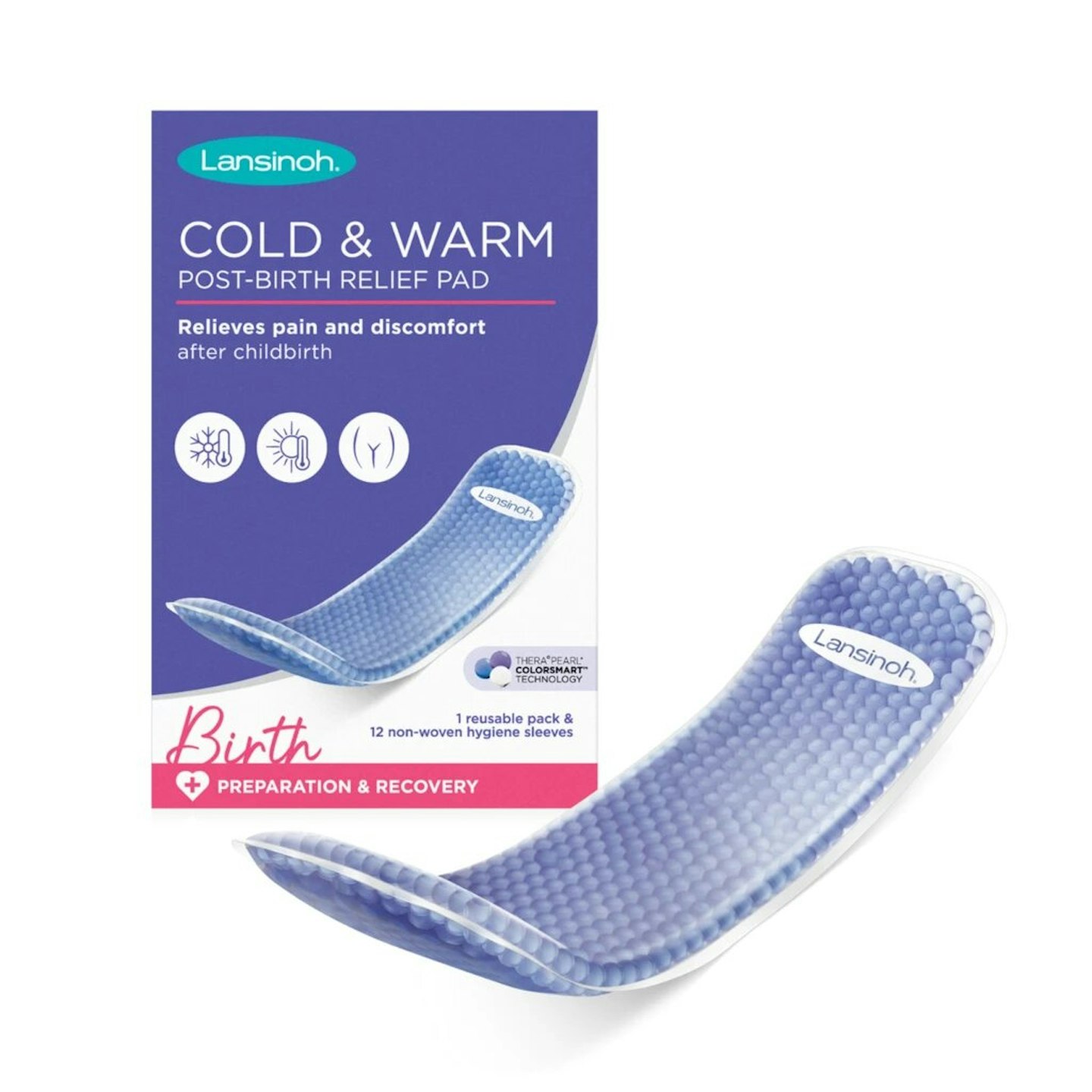 Image: Amazon
Image: Amazonredirect.viglink.com
Lansinoh’s Cold and Warm Relief pads are designed to provide an added level of comfort whilst recovering from your surgery.
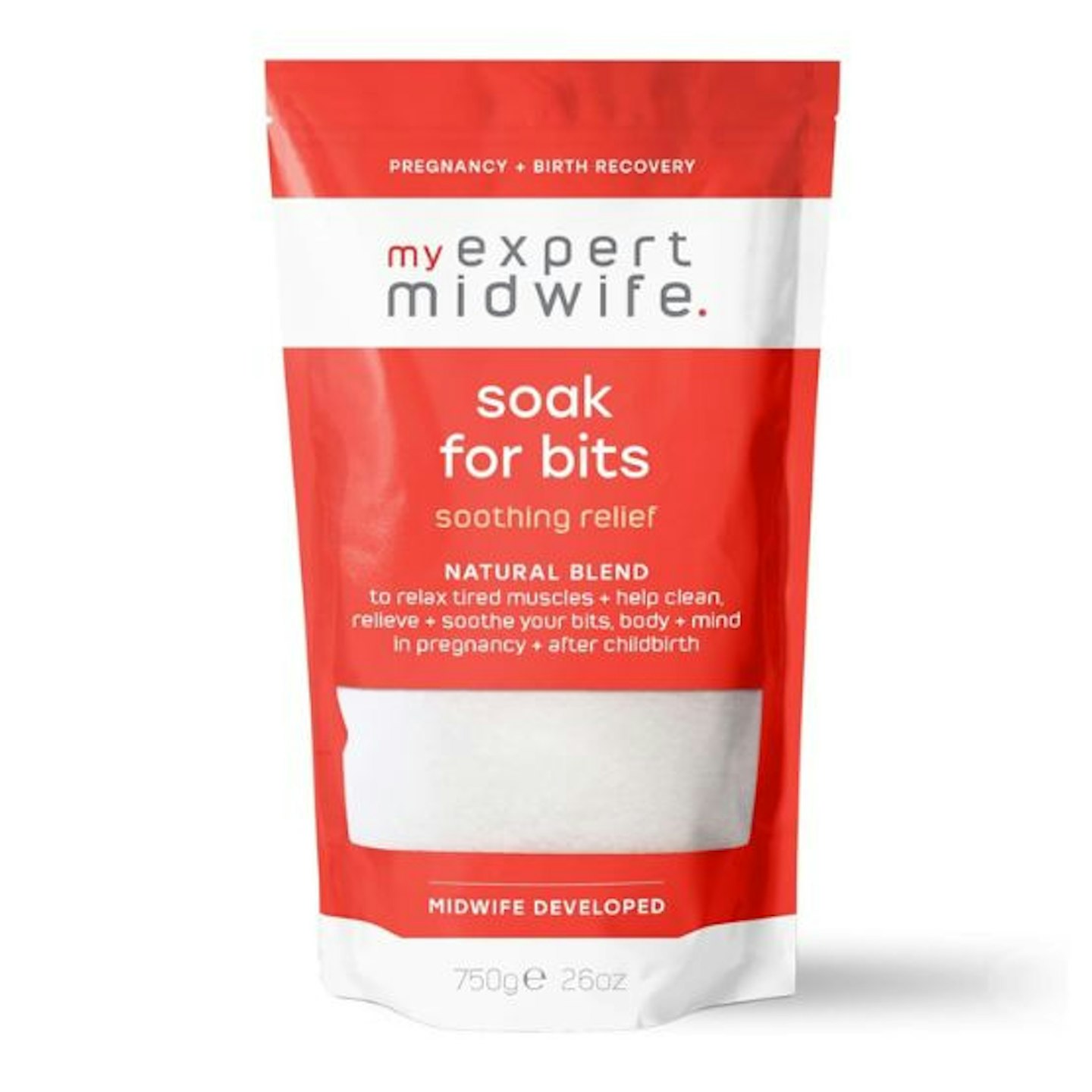 My Expert Midwife
My Expert Midwiferedirect.viglink.com
These Epson Salts and Essential Oils are designed to clean, soothe and help maintain the condition of the perineum to promote recovery but are also suitable after a c-section for their anti-inflammatory and anti-bacterial properties which help soothe swelling and bruising.
How should you get in and out of bed safely?
So, once you've mastered how to sleep after a c section, you might be wondering how you can get out of bed more easily. There are a few expert tips from Becca to help minimise the pressure on your wound and help you to get out of bed after a c-section:
-
Roll onto your side
-
Use your elbow and arms to push yourself up out of bed so you do not put any pressure or strain on your stitches.
-
Take it slowly and carefully and breathe out as you push up.
You might need some help with this for the first few days, so don't be embarrassed to ask for help!
What should you do if the pain is keeping you awake?
If your midwife or doctor has prescribed you pain relief during pregnancy, then it is a good idea to keep taking this regularly for the first days or even weeks after having a c-section, depending on your pain levels.
If taken as prescribed, this should keep the pain at a manageable level, which will aid in recovery. If the pain is keeping you awake at night, reach out to your midwife or doctor ASAP so they can rule out infection or anything else that could be causing consistent pain.
There are also some great tips on how to look after your c-section scar that might help you to recover quicker.
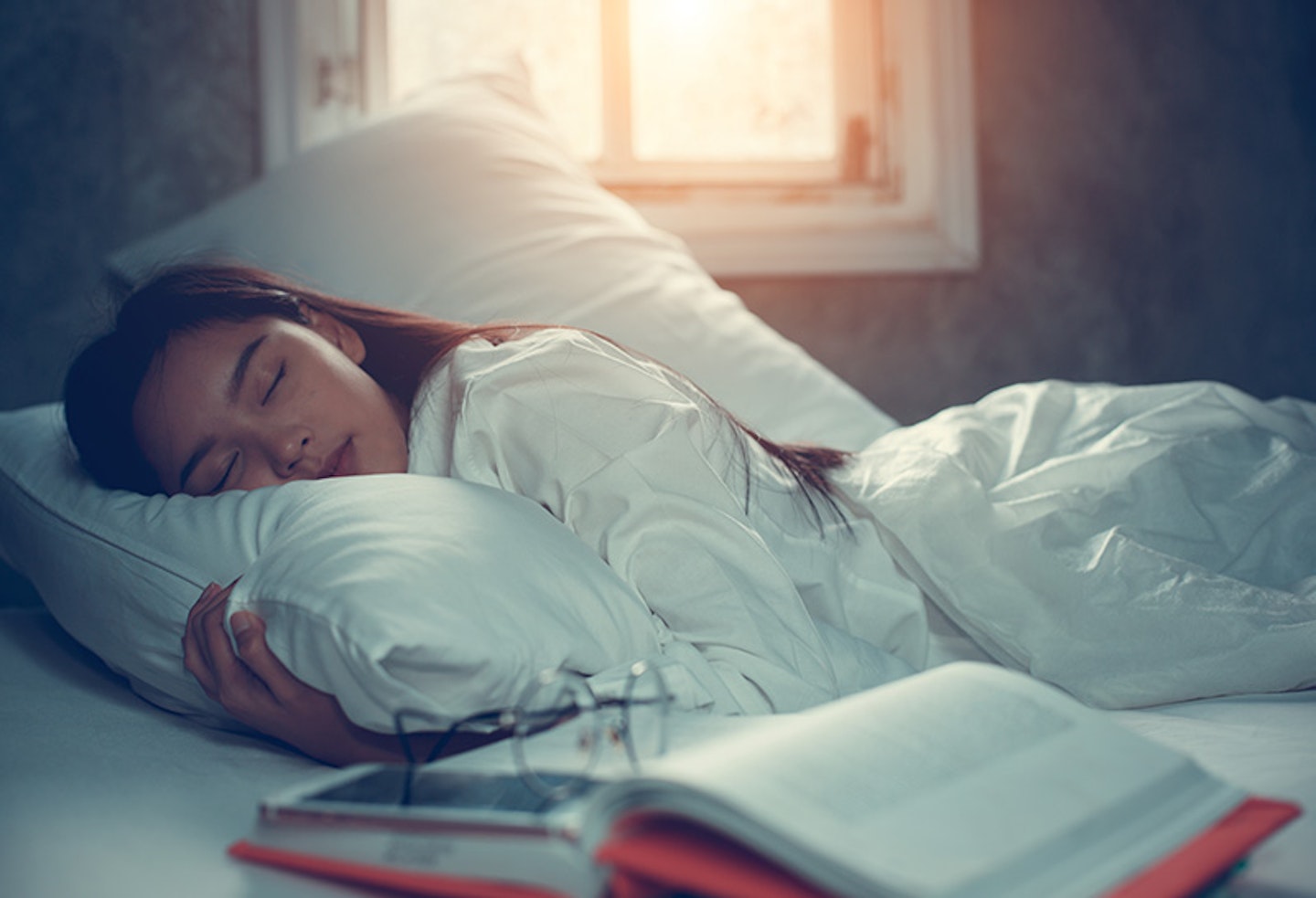
Tips for getting a good night's sleep after a C-section
There are plenty of other things you can do to improve the quality of your sleep after a c-section
Use a bedside crib - Co-sleepers and bedside cribs allow you to drop down the side so you can easily lift your baby out towards you for night feeding or soothe them back to sleep. They're especially great for mums recovering from a c-section.
Rely on your partner - If possible, let your partner do the heavy lifting, quite literally. They can take on daily tasks around the house and if you’re not breastfeeding or are combination feeding, they can manage the overnight feedings so you can sleep.
Create a relaxing sleep environment - Set the scene for a calm bedtime, whether that's with a sleep spray for your pillow, blackout blinds, or simply avoiding screens before bed.
Avoid caffeine and alcohol - These can both affect the quality of your sleep so avoid alcohol and caffeinated drinks as well as sugary or heavy meals before bed.
Eat well and stay hydrated - You've probably been eating healthily during pregnancy so keep doing this as you recover from your c-section. Getting the right balance of nutrition and plenty of water will help you avoid constipation which could put pressure on your incision.
Be gentle with yourself - While it's frustrating to have to take things slowly for a few weeks, your body is healing from surgery and it's important to take things slowly. Let others look after you and practise self-care and kindness. If you find that being less physical than usual is starting to affect your mood and you're feeling depressed after childbirth, speak to your midwife, health visitor or GP.
FAQ: How to sleep after a c-section
What is the recommended sleeping position after a c-section?
Healthline points out that back sleeping isn’t recommended once you’re more than 20 weeks pregnant – BUT – they say that this position IS recommended for those recovering from surgery. They say this is because it places the least amount of strain and pressure on your incision site and ensures that your body is aligned in a neutral position. Using a pillow to elevate your legs can make it more comfortable to sleep on your back, and roll onto your side before sitting to get up off the bed, rather than sitting upright.
After a c-section can I sleep on my side?
Csectionuk says you can lie on your side with a pillow or cushion between your knees for support. They say that this position helps alleviate pressure on the incision site and promotes blood circulation.
What is the pillow trick for C-section?
You can use a pillow to gently support your abdomen when you have had a c-section, specifically around the incision site. It acts as a protective cushions to help reduce any discomfort or pressure on your healing wound during sudden movements – like when laughing, coughing, sneezing, or getting in and out of bed.
Is it better to lay flat or elevated after a C-section?
Laying slightly elevated after having a c-section helps to reduce pressure on your incision, which can help you heal more comfortably. You can do this by propping your upper body up using pillows so that you're not lying completely flat, which may put more strain on the surgical site.
About the expert
Becca Maberly is an antenatal, postnatal and parenting expert and the founder of A Mother Place - famed for telling it like it is about pregnancy, birth and what comes after! She is the author of Nobody Tells You (over 100 honest stories about pregnancy, birth and parenthood) and more recently 'The Mother of All Journals' - a paper-based space where you’ll find support, encouragement, hacks and humour to help you grab a slice of calm in the chaos.
Lorna White is the Products Editor for Mother&Baby. After running the Yours magazine website, specialising in content about caring for kids and grandchildren, Lorna brought her expertise to Mother&Baby in 2020. She has a keen interest in a range of topics from potty training and nutrition to baby names and early development and has a wide range of experienced medical experts and professionals at her fingertips. In her spare time, she enjoys spending time with her two young sisters, dog walking and enjoying the outdoors with her family.
